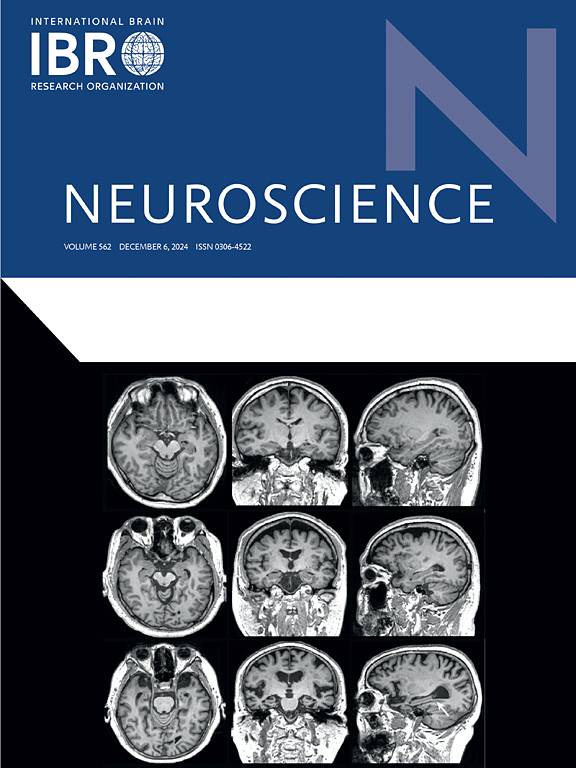Fecal microbiota transplantation alleviates neuronal Apoptosis, necroptosis and reactive microglia activation after ischemic stroke
IF 2.9
3区 医学
Q2 NEUROSCIENCES
引用次数: 0
Abstract
Objective
This study aims to delve into the mechanisms underlying the improvement of neurological function in rats with ischemic stroke through fecal microbiota transplantation.
Methods
A total of fifty male Sprague-Dawley rats were categorized into four groups: Sham, MCAO, MCAO+vehicle and FMT. We assessed behavioral and pathological alterations in the rats using modified neurological function scoring and TTC staining.Additionally, Western blot and immunofluorescence were used to detect the expression levels of Apoptotic and Necroptosis markers in neurons of ischemic brain tissue, and immunofluorescence was used to analyze the degree of activation of microglia.
Results
FMT group exhibited a decline in neurological function score compared to the MCAO and MCAO + vehicle group, accompanied by a reduction in infarct volume (P < 0.05). Relative to the SHAM group, the MCAO group displayed a significant increase in the expression levels of necroptosis-related proteins Phospho-RIP1, Phospho-RIP3, Phospho-MLKL, apoptotic proteins Bax and Cleaved caspase-3, and the iNOS positive microglia in ischemic brain tissue, while Bcl-2 expression was notably decreased (P < 0.05).Conversely, compared to the MCAO + vehicle group, the FMT group showed decreased expression levels of Phospho-RIP1, Phospho-RIP3, Phospho-MLKL, Bax, Cleaved caspase-3, and iNOS-positive microglia, while the expression of Bcl-2 was increased.
Conclusion
Fecal microbiota transplantation offers a promising approach to improving neurological function in rats with ischemic stroke by inhibiting neuronal apoptosis, necroptosis, and the polarization of inflammatory microglial cells.
粪便微生物群移植可缓解缺血性中风后神经元凋亡、坏死和小胶质细胞的 M1 极化。
研究目的本研究旨在探讨通过粪便微生物群移植改善缺血性脑卒中大鼠神经功能的机制:方法:将 50 只雄性 Sprague-Dawley 大鼠分为三组:假手术组、模型组和粪便移植组。我们使用改良神经功能评分法和 TTC 染色法评估大鼠的行为和病理改变。此外,我们还利用 Western 印迹和免疫荧光技术检测了缺血性脑组织神经元中 RIP1、RIP3、MLKL、p-MLKL、Bcl-2、Bax 和裂解的 caspase-3 的表达水平,并分析了 iNOS 和 Arg1 以评估小胶质细胞的极化:结果:与模型组相比,粪便移植组的神经功能评分下降,同时梗死体积缩小(P 结论:粪便微生物群移植对缺血性脑损伤的治疗效果显著:粪便微生物群移植通过抑制神经元凋亡、坏死和小胶质细胞的 M1 极化,为增强缺血性脑卒中大鼠的神经功能提供了一条可行的途径。
本文章由计算机程序翻译,如有差异,请以英文原文为准。
求助全文
约1分钟内获得全文
求助全文
来源期刊

Neuroscience
医学-神经科学
CiteScore
6.20
自引率
0.00%
发文量
394
审稿时长
52 days
期刊介绍:
Neuroscience publishes papers describing the results of original research on any aspect of the scientific study of the nervous system. Any paper, however short, will be considered for publication provided that it reports significant, new and carefully confirmed findings with full experimental details.
 求助内容:
求助内容: 应助结果提醒方式:
应助结果提醒方式:


